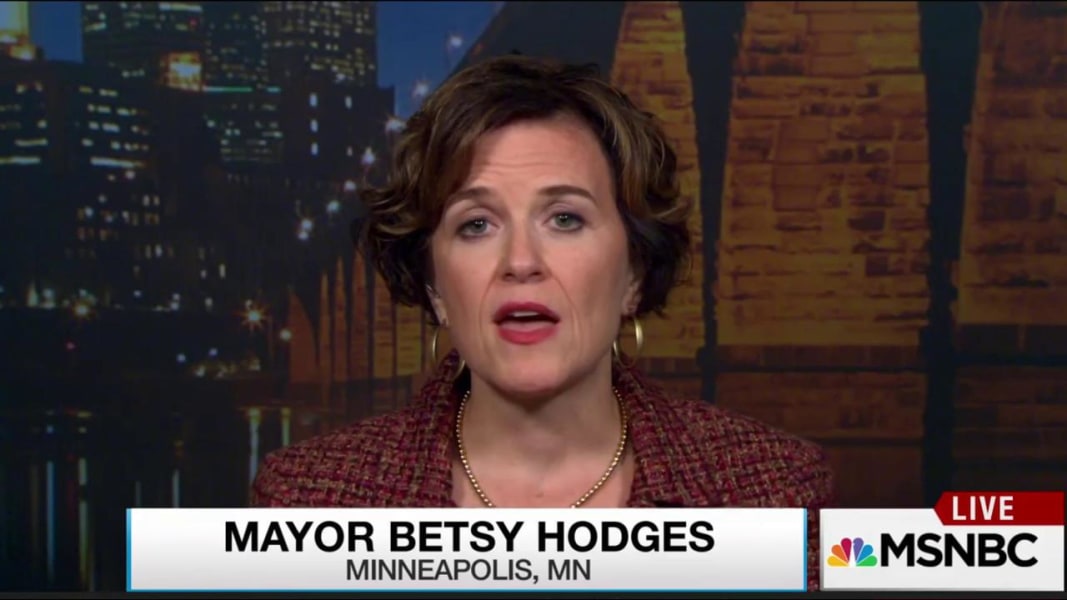Democratic mayors of major U.S. cities that have long had cool relationships with federal immigration officials say they will do all they can to protect residents from deportation, despite President-elect Donald Trump's vows to withhold potentially millions of dollars in taxpayer money if they do not cooperate.
New York City's Bill de Blasio, Chicago's Rahm Emanuel and Seattle's Ed Murray are among those in "sanctuary cities" that have tried to soothe worried immigrant populations.
"Seattle has always been a welcoming city," Murray said Monday. "The last thing I want is for us to start turning on our neighbors."
Democratic mayors of major U.S. cities that have long had cool relationships with federal immigration officials say they will do all they can to protect residents from deportation, despite President-elect Donald Trump's vows to withhold potentially millions of dollars in taxpayer money if they do not cooperate.
New York City's Bill de Blasio, Chicago's Rahm Emanuel and Seattle's Ed Murray are among those in "sanctuary cities" that have tried to soothe worried immigrant populations.
"Seattle has always been a welcoming city," Murray said Monday. "The last thing I want is for us to start turning on our neighbors."
In Providence, Rhode Island, Mayor Jorge Elorza, the son of Guatemalan immigrants, said he would continue a longstanding policy of refusing to hold people charged with civil infractions for federal immigration officials. Newark, New Jersey's Ras Baraka echoed that decision, calling Trump's rhetoric on immigration "scary."
Los Angeles Police Chief Charlie Beck told the Los Angeles Times that he's committed to a longtime policy of staying out of immigration issues. Mayor Eric Garcetti has backed that up but stopped short of calling LA a sanctuary city because the term is "ill-defined."
Philadelphia Mayor Jim Kenney restored sanctuary status when he took office in January and said last week the city would protect its residents. District of Columbia Mayor Muriel Bowser also said it would keep the status.
During the campaign, Trump gave a speech in which he promised to "end the sanctuary cities" and said those "that refuse to cooperate with federal authorities will not receive taxpayer dollars." He blamed such policies for "so many needless deaths."
Trump didn't elaborate on his plans for cracking down on the cities. In a "60 Minutes" interview broadcast Sunday, he said his administration's priority will be deporting criminals and securing the border.
But significant questions — and unease — remain about his approach to sanctuary cities.
There is no legal definition of the term, which is opposed by some immigration advocates who say it does not reflect that people can still be deported.
It generally refers to jurisdictions that don't cooperate with U.S. Immigration and Customs Enforcement. That can mean, for example, that they don't notify immigration officials when an undocumented immigrant is about to be released from custody.
Some cities, like San Francisco, have long declared themselves safe havens for immigrants, issuing local ID cards to allow them to access government or other services.
The term also been used to refer to cities that bar their employees, including police, from inquiring about a person's immigration status because crime victims and witnesses might be less likely to talk to investigators if they are worried about being deported.
"We don't want anybody to be afraid to talk to us," said Sheriff John Urquhart of Washington's King County, which includes Seattle.
Because states and cities can't be required to enforce federal law — and there's no U.S. requirement that police ask about a person's immigration status — it's likely that any Trump effort to crack down on sanctuary cities would focus on those that refuse to comply with ICE requests, said Roy Beck, chief executive of NumbersUSA, which wants to see immigration levels reduced.
It's also unclear what money Trump might pull. For Congress to impose conditions on federal money heading to the states, the conditions must be related to the funding's purpose, the U.S. Supreme Court has said.
For example, the government threatened to withhold highway funds from any state that failed to adopt a 0.08 blood-alcohol limit: Both the limit and the highway funding were related to road safety.
"If the funding is for improving childhood education, it's hard to say that's reasonably related to local law-enforcement cooperation with deportations," said Mary Fan, a University of Washington law school professor.
However, the U.S. Justice Department's inspector general looked at some jurisdictions with sanctuary policies earlier this year and concluded some appear to violate a federal law that says state and local governments may not prohibit or restrict workers from sharing information about a person's immigration status with federal immigration officials.
Having such policies could jeopardize millions of dollars in DOJ grant money the jurisdictions receive, the inspector general's memo said.
About 300 jurisdictions nationwide have sanctuary-like policies, according to the Center for Immigration Studies, which calls for lower immigration levels.

